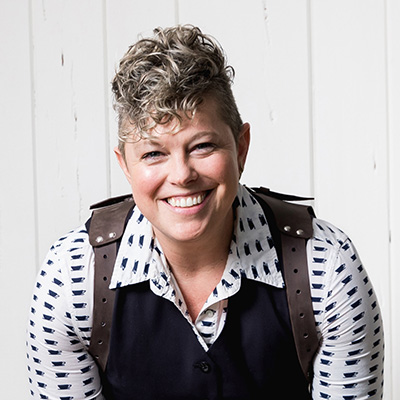There are many types of relationships, but they all have a few things in common—the successful ones do, anyway. The same things that create successful loving relationships are the building blocks for happy client relationships as well.
It all comes down to freedom and respect. Almost everything else we look for in relationships—honesty, loyalty, openness, understanding, security, and support—can be filed under these two main components. When you establish freedom and respect in the relationship between agency and client, everything else can flow naturally.
Freedom
It’s important that both agency and client feel as though they’re allowed to explore and innovate. The freedom to ideate new concepts and campaigns gives you both room to grow: the agency as a creative and/or strategic entity, and the client as both a business and a human. When either side gets too attached to one idea or strategy, or takes a “my way or the highway” approach, the entire project can stagnate—and resentment can build.
When that happens, one of you will look for an escape route. Client relationships don’t always end because an agency isn’t delivering results. Sometimes it’s about transparency, trust, and other non-tangibles, like freedom. There are a lot of agencies who can do a good job for their clients, so if they aren’t feeling connected, they’ll seek that trust with another agency.
Respect
Even in romantic relationships, respect may be more important than love. In a client relationship, each party has to respect both themselves and each other in terms of competence, trust, and experience. Each must be willing to set and respect boundaries for work, time, and the way you communicate with one another.
If you struggle to respect your client before you start working together, perhaps because of the self-prescriptive dynamic they’ve established during the discovery process or their own lack of belief in their product or service, you probably don’t want that client. While it’s possible to right a client relationship that takes a wrong turn over the course of your work together, starting off on the wrong foot will probably create a situation you wish you didn’t have to deal with.
How to Build Freedom and Respect into Your Client Relationships
It may be a little different for everyone, but this is a good place to start:
• Be Genuine: Real care and communication and a willingness to be vulnerable—being honest about your fears and weaknesses—gives your clients the real idea of who you are. In our digital world, the value of true connection and trust cannot be understated.
• Set Boundaries: Be clear about boundaries from the start, and don’t allow the client to toe the line. If you say you don’t accept calls after 5:30pm, don’t answer the phone at 6:10pm. Likewise, honor the boundaries your client provides to you, whether that’s in terms of communication beyond the primary contact or something else. If a boundary is crossed, it’s important to bring it up right away and resolve it.
• Communicate: This is key for both freedom and respect. Share your ideas, and be willing to speak up if something doesn’t sound quite right to you. That doesn’t make the other person wrong; it’s just an invitation to continue brainstorming.
• Take Responsibility: When something goes wrong, own it. You might not be at fault, but that doesn’t mean you don’t have to take responsibility. For example, a client might insist on a strategy that doesn’t work. When it fails—even though you weren’t to blame—you have an opportunity to rise above, take responsibility, and guide the client toward something better.
• Listen: The presence of a smartphone is distracting, even when you’re not using it. Close your laptop, put your smartphone away, and fully commit to listening to your client. We’ve all grown so accustomed to working around electronics when we try to speak to people; putting devices out of sight creates a bit of an unusual experience. You may walk away from the meeting with a better understanding of what your client needs, and he or she will know their needs have been communicated.
Relationships are tough because we can only control what we do. What the other person chooses to bring to the table can change the dynamic, as most of us have experienced in our friendships and even romantic relationships. No matter how focused you are on freedom and respect, if the client is micromanaging or failing to honor your boundaries, and you’ve spoken with them about it but it still hasn’t been resolved, then it might be time to break up.
There are always clients out there who will appreciate your expertise in the way you offer it, and you’re under no obligation to work with a client who doesn’t share your values within the relationship. Though it can be tough for a new agency to turn down a seemingly ideal client, you’re better off in the long run if you insist on freedom and respect from the onset. The more you embrace these as your agency, the more you’ll attract the clients that value them just as highly as you do. The pinnacle is when it becomes embedded in the ethos of your brand.
Improving client relationships is part of leveling up as an agency. Reach out if that’s something you’re focused on this year.



0 Comments